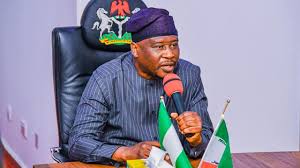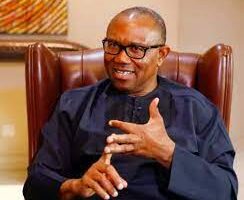Abuja Electricity Distribution Company (AEDC) is one of the companies handed over to the private operators last year. With Abuja as one its territories, AEDC of has a lot of pressure to contend with by the nature of its customers put side by side with dwindling electricity power supply. In this interview with MUSA ADAMU, the managing director of AEDC, Neil Croucher, makes a case for the controversial fixed charges which has been a subject of disagreement between consumers and the power vendors since the privatisation programme took off.
There have been fears that some of the private operators may not have the capacities to run the companies successfully. What do you think?
I do not agree with suggestion in some quarters that we don’t have the capacity to run these companies successfully. Yes, we do acknowledge that turning around a distribution system such as this will not be easy. However, we have the capacity to turn around the sector, going by some of the things I have listed to you that we have done so far to improve our network and enhance the quality of services we render to our customers.
In the meantime, we have established a call centre to ensure that customers’ complaints are captured and addressed promptly.
What were the surprises or challenges you met when you came in?
There were no big surprises though we found certain things to be worse than what we expected. For instance, the poor state of the management system we found after we took over was worse than we expected.
One of the major challenges is the absence of a cost-reflective tariff. This must be established for all Distribution Companies (DISCOs) to meet customers’ expectations
What are some of the new innovations you have effected since the last one year?
We have so far stabilized the company and instituted financialcontrols in the company. We have also made ourselves up-to-date on the payment oftaxes, e.g. withholding tax, value added tax (VAT), Pay-As-You-Earn(PAYE) which was not there before we came in, as well as paymentsto statutory funds and pension contributions.
Besides, we justconcluded the first external audit of the company, as well as thebaseline study to fit into the tariff adjustment. In addition, we havedone some improvements to the network which is a very large areacovering 133,000 square kilometres in four states.
When we came in wewere able to identify a huge backlog in the area of distributiontransformers, about 300 units needed replacement as quickly as we can.
We have already done about 150 at the cost of over N200 million. Wehave also implemented proactive incident management procedures such asline tracing, and provided infrared thermal imaginedetecting hotspots prior to failure.
We are also in the process of upgrading our vending and billingsystems, in preparation for the formal roll out of 100,000 metersevery year so that the unsatisfactory practice of estimated billingcan be rapidly done away with.
We have also put safety systems inplace to guard against avoidable accidents that could lead to loss oflives or even injuries. As we strive to improve service to a level, aHealth, Safety and Environment(HSE) policy has been fully integrated in our operations such that ithas a committee at the highest level of our Board. We take it as ourprime responsibility to ensure that we educate all customers andstakeholders on the safe handling of electricity.
And you may havenoticed that we periodically embark on safety sensitization campaignsto nooks and crannies of our coverage area.
We were recently in Lugbeand Jiwa, all in the federal capital territory (FCT). We are alsoworking on other legs of the safety campaign that would see us visitother parts of the coverage area.
Besides, the company is currently undergoing reorganization. It isbeing restructured to ensure that it can be an efficient organizationin the future.
The fixed charge tariff has been a bone of contention between consumers and the power vendors. Do you think it is right for consumers to pay for fixed charges when they are also paying for the power consumed?
I don’t agree with those who believe that the fixed chargecomponent of the tariff is unfair to the customers. I mean, we have made commitments with regards to improvements to be made on our network, and we cannot go back on that.
For instance, we indicated in our business plan that we are committing $200 million in five years. Failure to do that will result in a kind of default. More so, we have to do that if we expect to make some returns in the business.
Mind you, electricity tariffs in Nigeria are regulated and theregulator (NERC) will never allow companies to simply short-changeelectricity consumers, under whatever guise.
Members of the public say they expect incentives and palliatives beyond the provision of light from power vendors. Are you working towards that in the shortest possible time?
Our esteemed customers across our operating states should expect improving quality of electricity supply andservices.
The number of estimated bills should drop as we roll out our100,000 meters per year scheme. They should also expect improvedelectricity billing and vending systems in the months ahead.
It is a promise we have made and we expect to keep. I don’t say so to make people happy. I say so because it is part of our business plan and that is what will keep us in business in the long run



